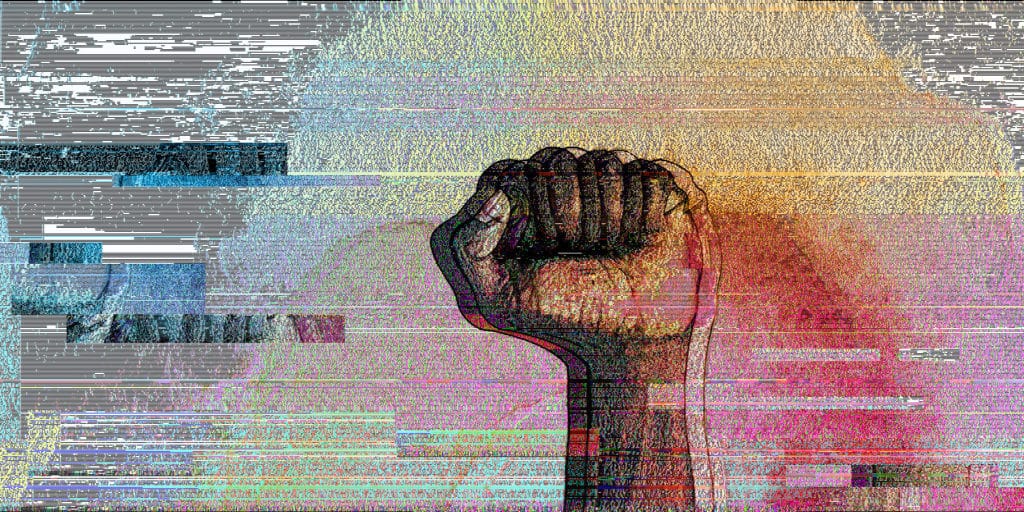In response to reports that iris scan technology supplied by UK-registered company, IrisGuard, is being used by the World Food Programme (WFP) and the United Nations High Commissioner for Refugees (UNHCR) in refugee camps and urban centers in Jordan, on 5 May, 2021, Access Now contacted the organizations to raise human rights concerns, and ask a series of questions. View the response.
The UNHCR Representation in Jordan
P.O. Box 17101, 11195 Amman,
Jordan
Office of the Director, MENA Bureau in Amman
P.O.Box 940033, 11194 Amman,
Jordan
WFP Office Amman
P.O.Box: 930727, Amman 11193,
Jordan
Re: The collection and use of refugees’ biometric data by UNHCR and WFP in Jordan
We are writing to you in follow up to our meeting on April 14, 2021 regarding the iris scan technology used by the UN High Commissioner for Refugees (UNHCR) and the World Food Programme (WFP) in Jordan, provided by the private company IrisGuard.
We sincerely welcome the opportunity to openly engage with you on data protection and privacy issues pertaining to UNHCR’s registration of Syrian refugees in Jordan, which in many cases involves biometric data collection, as well as the use of this data for biometric authentication purposes related to assistance programmes, including UNHCR’s multi-stakeholder cash delivery framework, the Common Cash Facility (CCF), and WFP’s iris scan payment system for food assistance.
As a global organization with the mission to defend and extend human rights in the digital age, we seek to advance robust, rights-respecting, and user-centric data protection policies and frameworks to ensure that new technologies do not hamper or infringe on the fundamental rights of individuals and communities, especially those most vulnerable, and expose them to further risks.
We recognize that new technologies can help humanitarian aid agencies scale up their operations and facilitate more efficient and effective aid distribution to affected communities. However, we are very alarmed by the mass-scale collection and use of refugees’ sensitive biometric data for identification and authentication purposes. This form of identity management is highly intrusive, poses grave security risks, and the harms resulting from breach of biometric data are irreparable. Therefore, it should only be used when there is informed and freely given explicit consent, it’s completely safe, not liable to error, and is the only method of authentication available for the purposes intended, in line with the principles of necessity and proportionality.
To mitigate these impacts in a manner that respects human rights, and to seek further understanding and clarity regarding the collection and use of refugees’ biometric data by UNHCR and WFP, we would appreciate your providing us with information to the following questions:
- Which policies of the United Nations, WFP, and UNHCR govern the collection, processing, and use of the biometric data of refugees and displaced persons, both at global and local levels?
- Is there an alternative option for refugees who do not wish to share their biometric data both at the point of registration by UNHCR and its use by WFP for food shopping and cash assistance? If so, what limitations might they face in accessing assistance and protection?
- Have WFP and UNHCR requested or conducted an independent security and privacy audit or a human rights due diligence for IrisGuard’s technologies before they were procured? What legal provisions, such as for technical audits and breach notification, safeguard refugees’ data in contracts between WFP and UNHCR and third party vendors such as IrisGuard?
- What were the results of UNHCR’s Data Protection Impact Assessment that it carried out to assess risks relating to the collection of biometric data of refugees in Jordan?
- In addition to the iris scan, are there any other biometric data collected for identification or other purposes in Jordan? Are any technology vendors besides IrisGuard directly involved in biometric data collection, retention, or processing?
- Where is the collected data stored? Who is authorized or can be authorized to access the database of the iris scan payment system from within UNHCR and WFP, and from external partners including government authorities in Jordan?
- What are the terms of the data-sharing agreement that UNHCR and WFP have with the Jordanian government on refugees’ personal data?
- Has UNHCR or WFP received any request for data sharing by the Jordanian authorities or law enforcement? If so, for what purposes and was information shared? Under which data access policy and procedures were the requests processed?
- What data has been shared, if any, with the Jordanian government, IrisGuard, Cairo Amman Bank, or other private companies for the implementation of the Common Cash Facility (CCF)?
- In reference to a statement made to the Jordan Times on Jul 07,2014, UNHCR donated iris scan equipment to the Jordanian Ministry of Interior for refugees’ registration at 108 police stations.
-
- What role have the Jordanian authorities, including the police, played in the biometric registration of refugees?
- Does the police or other official entity have access to the central server connected to those devices?
- What are the “regular data exchange mechanisms” between UNHCR and the Public Security Department? What data is exchanged and for what purposes?
- Is refugees’ explicit consent required for the collection of biometric data by UNHCR in Jordan? Are refugees informed about the purpose and use of their biometric data? If so, what is the process for informing them?
- How many refugees are currently registered biometrically in Jordan specifically and in other MENA countries in total? What is the minimum age for biometric registration?
We would greatly appreciate a public response by May 19, 2021.
Sincerely,
Marwa Fatafta | MENA Policy Manager | [email protected]
Peter Micek | General Counsel | [email protected]
